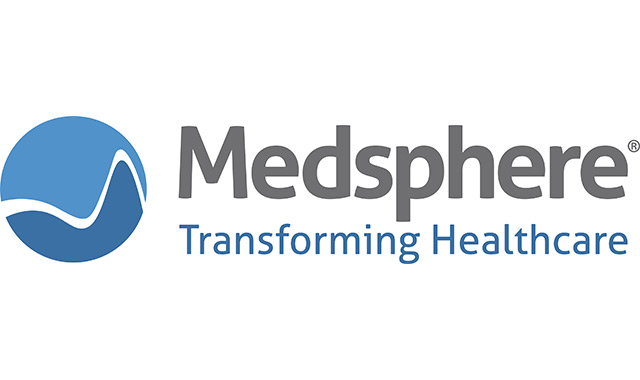A human being should be able to change a diaper, plan an invasion, butcher a hog, conn a ship, design a building, write a sonnet, balance accounts, build a wall, set a bone, comfort the dying, take orders, give orders, cooperate, act alone, solve equations, analyze a new problem, pitch manure, program a computer, cook a tasty meal, fight efficiently, die gallantly. Specialization is for insects.”
– Robert A. Heinlein
In almost every walk of life, we worship at the altar of specific expertise. It makes sense. Who, after all, doesn’t want a brilliant legal defense, a witty and erudite professor, a perfectly chewy bagel?
The division of labor drives how we pursue education, get paid and find professional and personal satisfaction. Sometimes, however, it also creates blinders that make it hard to see challenges lurking just off stage.
Take healthcare, for example, and the myriad things that can go wrong with the human body. Is American healthcare treating individual problems or the whole person?
“After decades of fragmenting medicine into specialties and subspecialties, it’s perhaps not surprising that a siloed system often fails those in need of whole-person care,” writes Druv Khular, MD, in a recent New York Times article. “I still sometimes wonder if I had let my patient’s mental illness overshadow his physical needs. Did I overlook some subtle cue?”
Khular isn’t concerned about missing something because he’s ambivalent. Rather, he was trained and works in a system that promotes specialization over generalization, even though he’s not an insect. (Perhaps Heinlein could have written something about a physician being able to “set a bone,” bind a wound, manage hypertension and navigate bipolar disorder.)
Among the challenges for physicians these days, Khular argues, are “therapeutic pessimism”—the tendency to think patients with mental illness can’t get better—and “diagnostic overshadowing” in which a patient’s physical problems are attributed to mental illness and not properly treated.
It’s not that specialization was or is necessarily a detrimental approach to healthcare. If I have a heart problem, I want my cardiologist to know as much about the heart as anyone on earth. It’s that the necessary approach is not always the optimal approach.
“Only 37 percent of doctors serve in primary care, yet 56 percent of the office visits are completed by that particular group of physicians,” writes Niran S. Al-Agba, a third-generation primary care physician. “In my grandfathers’ time, primary care physicians made up 70 to 80 percent of the physician workforce.”
Over the last few decades, as primary care doctors have become a smaller slice of the labor pool, the mortality ratio for people with schizophrenia versus the general population has steadily risen, from 1.8 in the 70s to 3.7 now. Yes, many other aspects of mental healthcare—a massive reduction in available psychiatric beds, for example—have changed in that time frame, but that still doesn’t let increased specialization and fewer primary care physicians off the hook.
The thing is, those with chronic mental illness don’t die of a mental illness. Their lives are shortened by the same diseases that end most lives—heart disease, diabetes, heart attack, cancer—exacerbated by a stronger tendency to abuse drugs, alcohol and tobacco.
“People with serious mental illness are often our toughest patients…” writes Lisa Rosenbaum, MD, in the New England Journal of Medicine (NEJM). “To meaningfully improve care for the mentally ill, we must recognize that, as Massachusetts General Hospital psychiatrist Oliver Freudenreich puts it, ‘Care integration is an attitude.’”
If so, it’s an attitude we’ve mostly failed to embrace.
“Once they find out you have a mental illness … it’s like the lights go out,” said Kenneth Reilly to his brother, Brendan Reilly, MD, author of a searing NEJM piece detailing his late brother’s experience. “Many doctors and nurses seethe about the profit-driven dis-integration of our health care market yet insist they can’t fix this mess themselves. Kenneth, no stranger to cognitive dissonance, said, ‘Well, if they can’t fix it, who the hell can?’”
The question hangs in the air and calls to mind all that we’ve learned of late about how behavioral health is the canary in the coal mind of our healthcare system. Opioid addiction ravages many parts of the country. Suicide rates have risen 25 percent nationwide since 1999. The mentally ill homeless aimlessly wander our cities.
And yet, despite heartbreaking stories and periods of hopelessness, the system is evolving in ways that better protect patients.
Khular points to the use of a transitional clinic by UT Health San Antonio that gives the mentally ill more support in getting back to life after discharge. While historically 7 percent of psychiatric patients transition back to the hospital within a month of being released, only 1 percent have returned after using the UT Health San Antonio program.
Last month the U.S. Senate passed legislation that offers incentives to behavioral health facilities for electronic health record (EHR) adoption and moves the entire healthcare industry one small step closer to giving clinicians complete patient records at the point of care.
Can the ability to see a history of both diabetes and bipolar disorder help overcome diagnostic overshadowing and improve treatment of the entire patient? Not by itself, no. But when paired with programs like the one at UT Health San Antonio, change is quite possible, if never easy.
It’s not just that emergency care for the mentally ill is the most expensive approach. It’s not just that specialization fails to recognize that each person is an integrated system. It’s that not caring for those literally incapable of caring for themselves undermines our humanity.
After all, we’re not insects, are we?
Irv Lichtenwald is president and CEO of Medsphere Systems Corporation, the solution provider for the CareVue electronic health record.






























